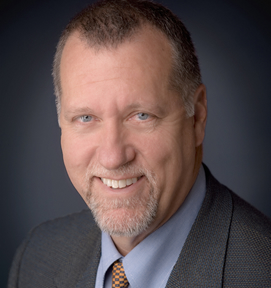If you want to protect an elder, take the right steps.
![]()
By James Ward

James Ward
Sometimes people ask for help, but then never follow through on the advice they’re given. It’s not just advice from their attorneys, it’s also advice from their doctors, therapists, accountants … and the list goes on. It can even be true when your mechanic tells you to get something fixed, or that you need new tires. Maybe you should listen, make your own evaluation of the facts, and then, just maybe, take action to prevent things from getting worse.
But, from the estate planning perspective, it may be too late to act later. Maybe you’ve had an accident or fall or stroke, and simply can’t act. In the case of dementia, maybe you’ve waited so long that the person who needs to sign documents no longer has the mental capacity to sign.
We get cases where an elder has early dementia and is being taken advantage of by a child or other person, but the elder moves too slow to make changes to protect them-self, or the family members trying to protect the elder don’t take the responsible steps to protect the elder.
Sometimes it gets to the point where the elder is just too tired to care anymore, or figures they’re about to die anyway, and their family will just sort it all out. I had a case recently where it was pretty obvious the parent had early dementia, and also pretty obvious that one of the children was trying to undo the parent’s plan for distribution of the assets, but the daughter in charge of the trust kept dragging her feet about getting the parent evaluated to see whether they had the capacity to sign new documents. The greedy child, meanwhile, kept moving ahead on attempts to enrich themself, but the child who was supposed to be in charge ignored the advice to have the parent evaluated.
 Every three months or so, I’d get a call from the concerned child who was in charge, and I’d go back to the original recommendation to get the parent evaluated so we could (1) know that new documents could be signed, or (2) have the evaluation in hand if we later needed to establish the changes the greedy child instigated were invalid because the parent already lacked capacity to make those changes.
Every three months or so, I’d get a call from the concerned child who was in charge, and I’d go back to the original recommendation to get the parent evaluated so we could (1) know that new documents could be signed, or (2) have the evaluation in hand if we later needed to establish the changes the greedy child instigated were invalid because the parent already lacked capacity to make those changes.
If you want to protect the elder, take the right steps. I had a couple of clients who I had known for years, and then the wife started sliding downhill and they wanted to get ready in case they needed assistance for her from Medi-Cal. We made a plan for what to do if the need arose to get the wife on Medi-Cal. Well, a year or two later, the wife needed to be on Medi-Cal. The husband asked me to call his son, because the son is an attorney. I called the son and told him exactly what needed to be done, and I gave him a fixed price quote to get it done. The son, being an attorney, told me he was an attorney, and he would just do it himself rather than pay me. I advised him that there was much more to it than just drafting a trust, but he was confident that he could do it.
Five months later, the attorney son was on the phone to me again complaining that Medi-Cal had denied coverage for his mother. I politely pointed out that he was a personal injury attorney and had admittedly never handled a Medi-Cal case, and that I had previously advised him that he needed an experienced attorney to handle the case. It appeared that the lost money, so far, already exceeded $45,000 by not getting it done right several months earlier.
Yes, he’s a busy guy, and yes, he’s an attorney, but his lack of following the recommendation of an experienced attorney had already cost his parents thousands of dollars. Think about it. If you ask an expert for advice, is there really a solid reason why you don’t follow through on that advice?







